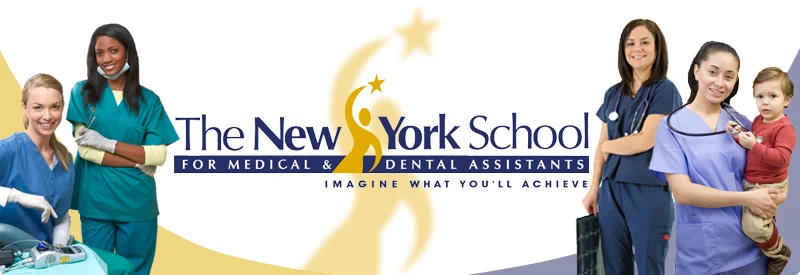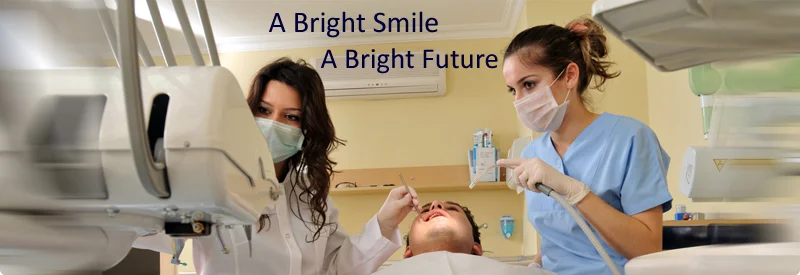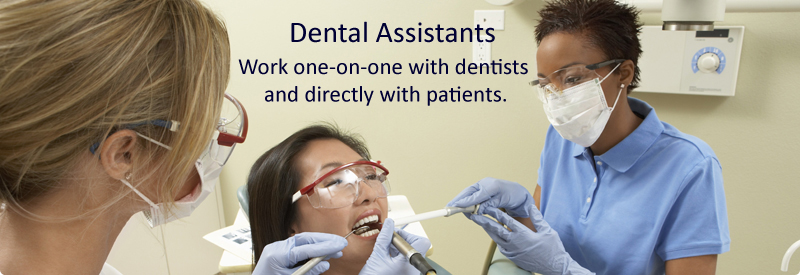Study Skills for Medical Assisting and Dental Assisting Students
/As a medical assisting student or a dental assisting student, your classes will include a lot of new information, facts, and techniques that you will have to learn thoroughly.
As you progress through the curriculum, you will need to master the content from each class as a basis for understanding the content in more advanced classes. For dental, Oral Anatomy & Physiology and Dental Materials will prepare you to take Dental Radiology and Introduction to Chairside Assisting. In medical, Medical Terminology and Anatomy & Physiology will prepare you to take Treatment Room Procedures and Laboratory Techniques.
You will also need to have the knowledge for certification exams, the Certified Dental Assistant (CDA) series for dental and the Registered Medical Assistant (RMA) and the National Phlebotomy Association (NPA) for medical.
What are the best ways to study and learn all this new material? To remember it while you’re taking a class, for future classes, for certification exams, and for when you’re a working medical assistant or dental assistant? Two techniques that studies have shown to be particularly effective are practice testing and distributed practice.
Practice tests are a terrific technique for studying, even if you’re not preparing for an exam in the immediate future. Active practice is more effective in helping you remember than passively reviewing the material. Look for practice exams online or in the library. You can also test yourself by answering the questions in the back of a textbook chapter or using digital or printed flashcards.
Distributed practice is another proven technique. What that means is spreading out your study time over days or even weeks. You will learn more effectively from 3 study sessions of 2 hours each than from cramming for 6 hours. Memories are consolidated – changed from something you know at that moment to long-term memories – by coming back to the same material more than once, over time. Sleep also assists in memory consolidation; sleeping after studying and then reviewing the material again after you’ve slept is particularly effective.
Other tips for studying:
Summarize, self-explain, paraphrase. Change the information you’re studying into your own words. If you can’t do that, reread or review the material to get a better understanding. Your comprehension and memory will improve.
“Chunk” your work. Don’t try to finish everything at once. Set smaller, attainable goals.
Get organized! Save time and reduce frustration by keeping your texts, handouts, and study aids where you can find them when you need them.
Manage your time. Estimate the time you’ll need to study and build it into your schedule. Determine the time of day you learn best, and schedule for that time if you can. If you can, use waiting time and in-between time – be prepared with study tasks that fit the time you have available.
Study the tough stuff first. Start with the subjects that you find most challenging, so you have sufficient time, and leave the easier subjects for the time you have left.
Alternate subjects. If you are studying three different subjects, and two of them are similar, sandwich the different subject between the two that are similar.
Take breaks. Take a few minutes off every hour or so. Get up, walk around, go outside if you can. Physical activity can be energizing and help you focus. Set a time limit for your break and stick to it.
Study on your own. Find a setting where you are comfortable and can be uninterrupted. It’s the best way to read and absorb new information.
Find a partner or group to study with, for some of your study time. Asking each other practice questions and explaining challenging topics to each other helps both the person explaining and those listening to understand and retain the information. If your partner or group is serious about studying, working together can help you stay motivated. But be careful – if your group gets distracted and doesn’t do the work, you’re better off on your own.
Figuring out which study techniques work for you can help you get better outcomes in your classes, on your exams, and in your career. Studying to be a dental assistant or a medical assistant is challenging, but the results are worth it!







